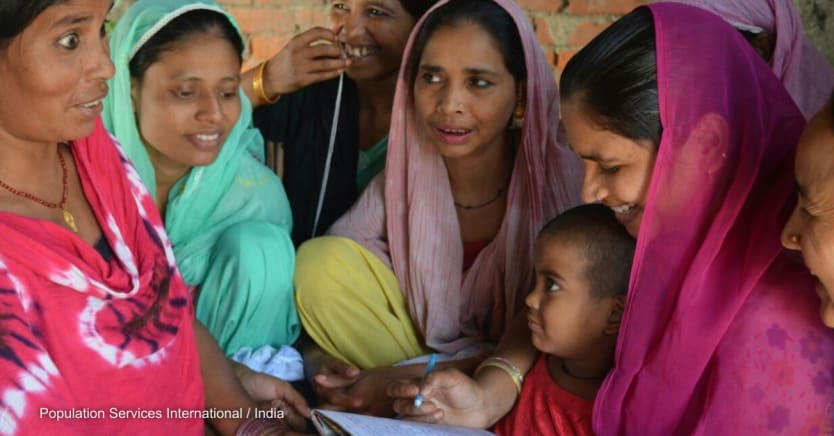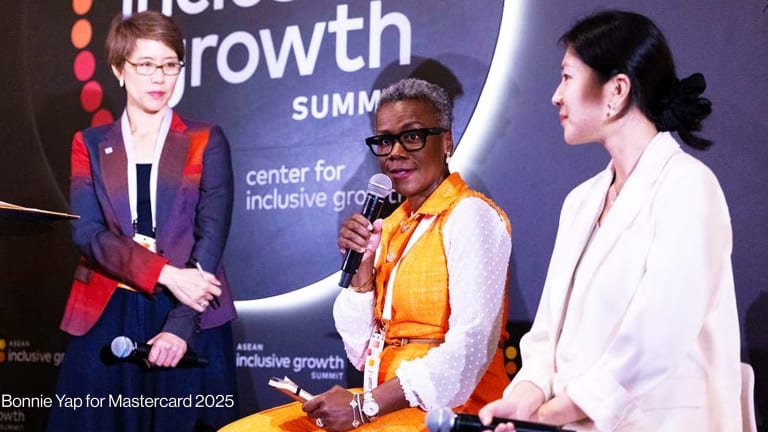
Storytelling is as old as humanity itself. Throughout history people have shared stories to pass on knowledge, celebrate successful achievements, and mobilize people toward a common vision and cause.
The IBP Network, a global alliance hosted by the World Health Organization and dedicated to improving family planning and sexual and reproductive health outcomes, and Knowledge SUCCESS — a United States Agency for International Development funded knowledge management project — embarked on an innovative initiative in 2020 to take storytelling to another level. Through the IBP implementation stories, we encouraged storytelling as a means of documenting processes and the impact of family planning reproductive health, or FP/RH, interventions.
This initiative was launched through a competition calling for testimonies on how high-impact practices, WHO guidelines, and tools in FP/RH — such as those on contraception — had been implemented on the ground. We were looking for proven impact; diversity across geographic regions and types of organizations; and unique experiences with a clear voice. Out of more than 100 submissions in three different languages, 15 winners, which represent organizations from around the globe, were selected.
These stories serve as valuable reminders to global institutions of the importance of continuing the work to improve reproductive health for all. … [And] to be considerate of the local context of the people and communities.”
—Each winner received a grant of $2,500 to support their documentation process.
In close collaboration with IBP and Knowledge SUCCESS, they then synthesized their implementation experiences into easy-to-read, captivating stories. The final outputs were translated into three languages and brought to life with photos from field experiences.
Through an IBP-hosted webinar series, and dissemination via the wide networks of WHO, Knowledge SUCCESS, and other IBP partners, the stories were widely circulated to a global audience.
This initiative aimed to collect information on how global FP/RH tools were being used in the field, as well as to explore and encourage alternative means of documenting such implementation.
Global organizations invest significant resources into developing and disseminating global evidence-based guidance in FP/RH, but there is limited understanding of how this information is actually used in practice in local settings, let alone what the challenges, successes, and needs for adaptations may be.
The final stories confirmed that storytelling can be a useful way to share experiences and learn about the implementation of health interventions. Beyond mere documentation, this project also revealed the following advantages of storytelling in the context of FP/RH programming.
1. Storytelling is a powerful way of documenting evidence and impact
The winning stories do not only outline what interventions have been done, but they also describe how these efforts have had concrete and positive effects on reproductive health outcomes, for individuals and for communities.
By integrating robust data into the stories — in combination with qualitative information — these stories paint inspiring yet solid pictures of the results of evidence-based practices. Real-life anecdotes that use quotes, names, and images of real people, provide context and add layers and nuances to the numbers.
Testimonies give depth to the implementation process and convey how the impact often goes beyond FP/RH outcomes to having an effect on education, employment, poverty reduction, gender equality, and rights awareness for people and communities.
In this way, storytelling proved to be an efficient way of collecting evidence on what really works for improving FP/RH outcomes.
2. Stories can be used for advocacy
Many of the winning stories in this project were used by their organizations as advocacy tools on a national level. They served as useful resources in advocating for the funding of practices and interventions that were proven to work in specific local contexts.
With the targeted funding received through this IBP project, these organizations could leverage their stories as they see fit within their context; for example, by conducting field visits. IntraHealth, for instance, used some funding to hold in-person workshops with local stakeholders to share their story about using community engagement to improve uptake of voluntary FP in rural Uganda. The idea was to provide an opportunity to discuss lessons learned and possible replication.
In India, the authors of Population Services International’s submission — with support from IBP — organized a national webinar to further advocate for their program, which focused on fixed-day service provision of FP in urban areas.
Profamilia’s story from Colombia resulted in support from two funders to co-write a global strategic planning guide on FP for people living with disabilities.
Moreover, the stories and webinars allow other stakeholders to learn from successes and challenges; to adopt evidence-based practices, and to consider creative documentation.
3. The storytelling process allows for capacity strengthening
While the stories can provide global organizations, such as IBP and Knowledge SUCCESS, with valuable insights into local circumstances, challenges, and opportunities, many of the authors expressed how the process of developing the narratives strengthened their skills. It allowed them to improve existing knowledge in writing for different audiences, in using visuals, numbers, and qualitative data to build a case, and in disseminating, promoting, and advocating for their own work.
The project also encourages winners, as well as their audiences, to explore creative modes of documentation. Several of the winners expressed interest in using additional formats for documentation and communication in the future, including infographics, audio, and video.
As a next step in this project, Knowledge SUCCESS and IBP will launch a series of podcast episodes, in which the winning organizations will share their implementation experiences to audiences who may prefer listening to, rather than reading, stories.
Experiences and knowledge packaged as inspiring narratives can engage and convince new audiences, such as donors, ministries of health, and local community stakeholders. Stories also give faces and names to real-life reproductive health issues and opportunities.
In doing so, these stories serve as valuable reminders to global institutions of the importance of continuing the work to improve reproductive health for all. And not the least, to be considerate of the local context of the people and communities whose lives are directly impacted by our programs.
Read all 15 stories on the IBP Network Platform.










